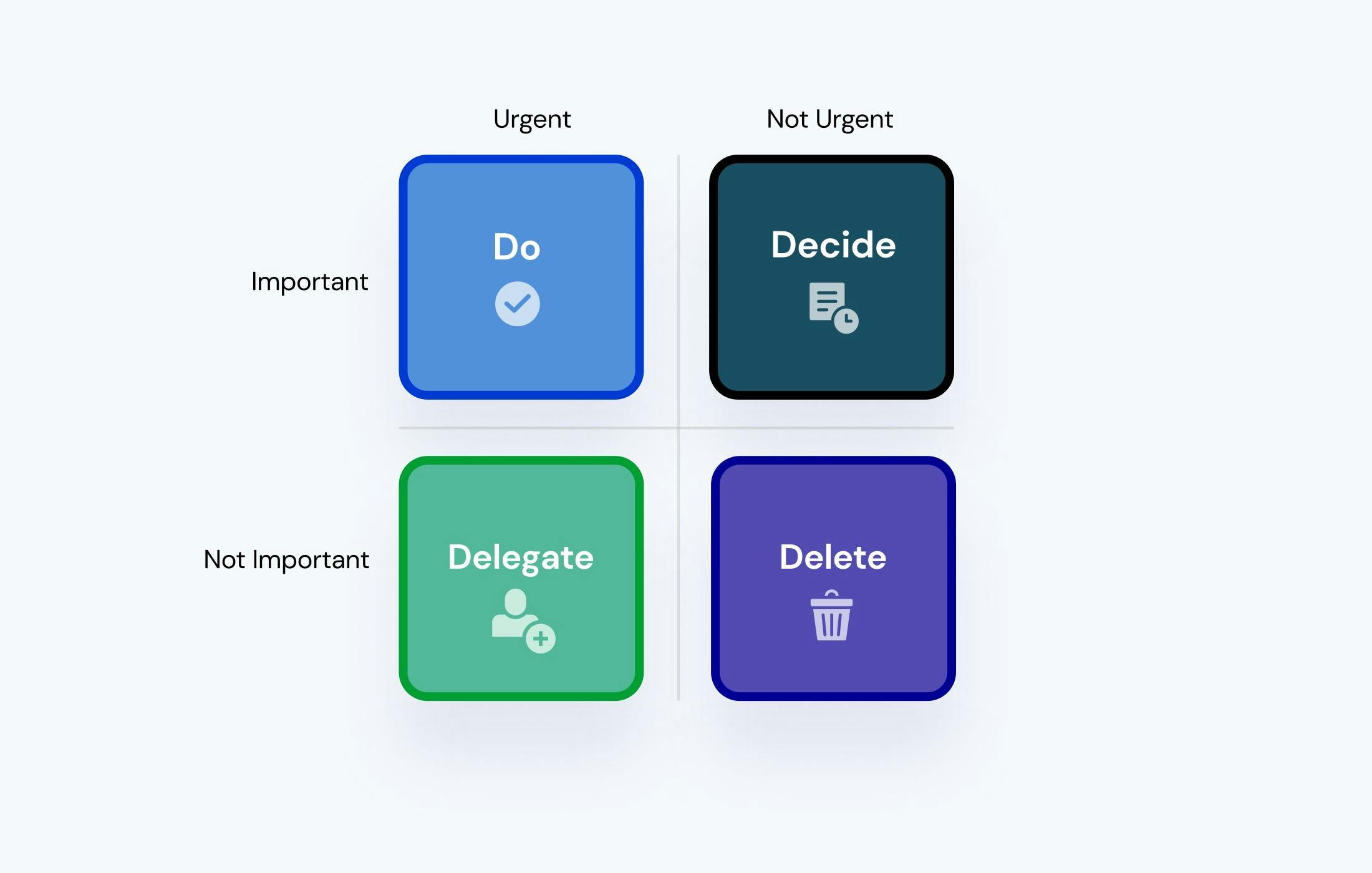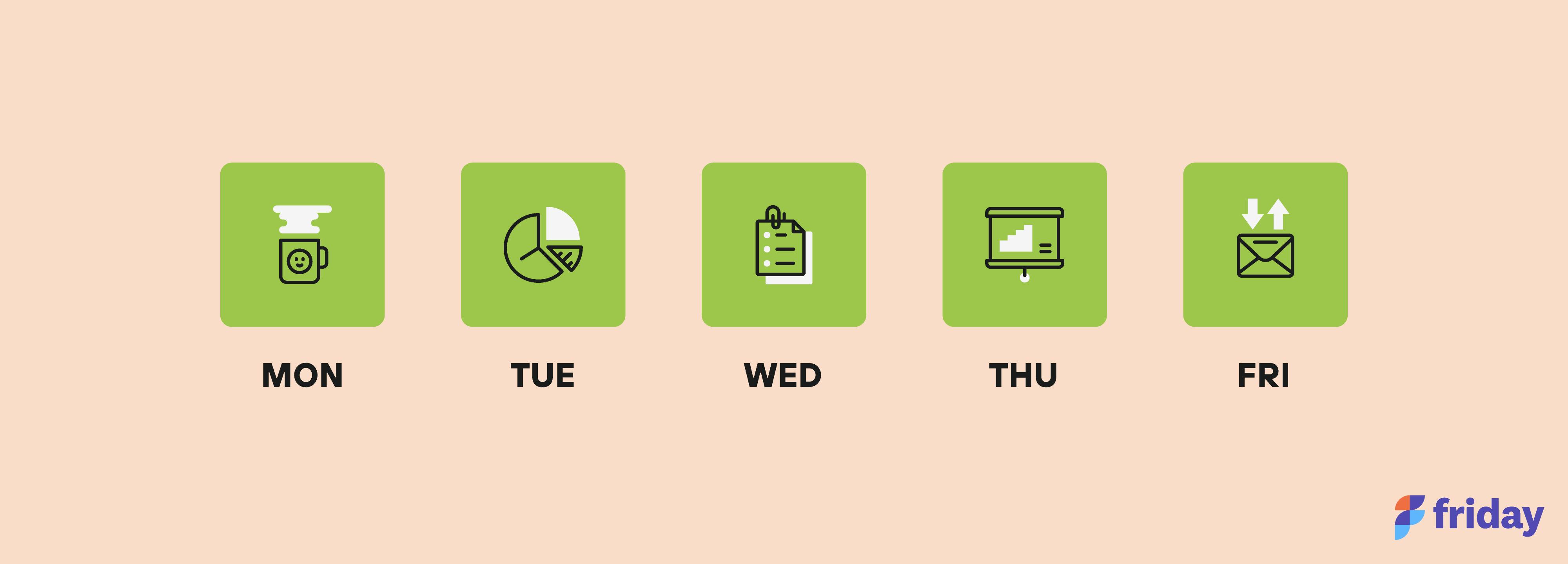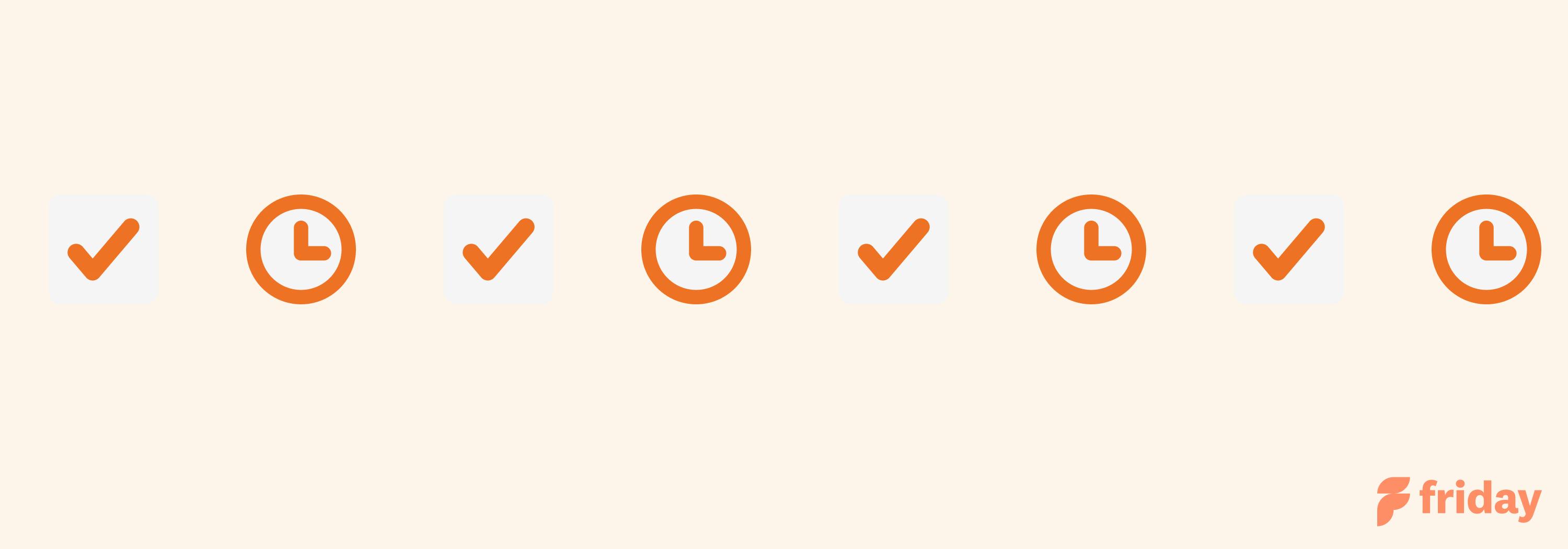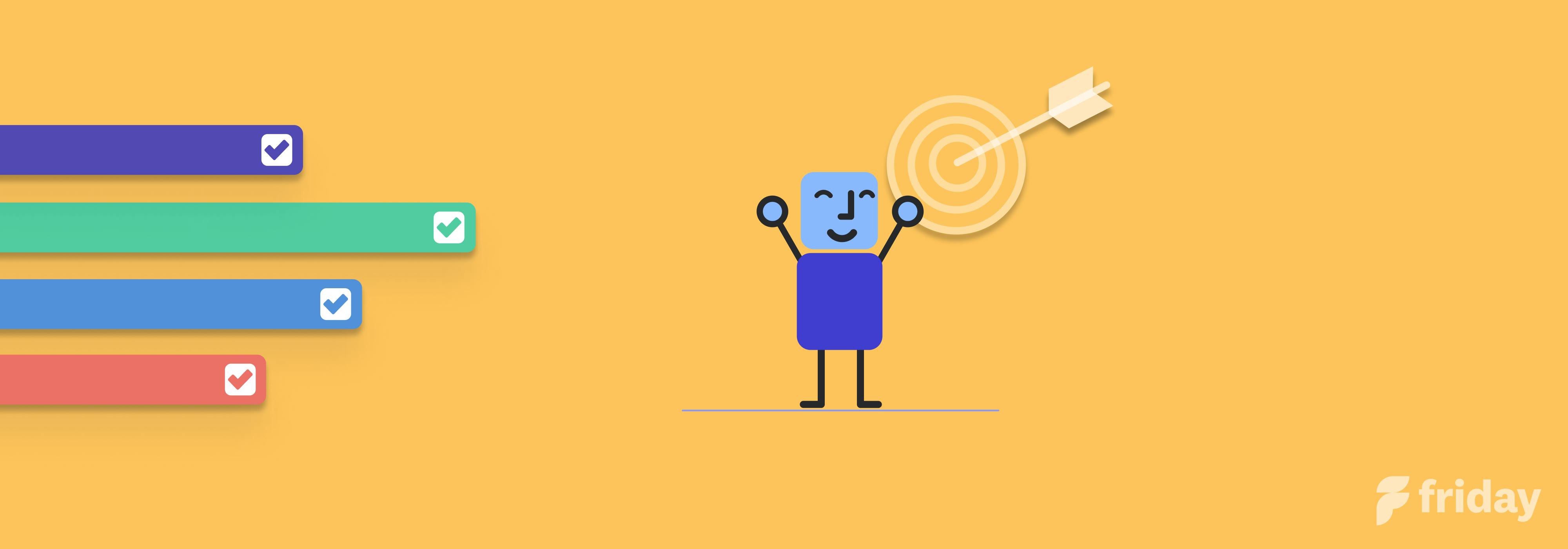How to Have a Productive Day: 7 Amazingly Useful Tips For Each Morning

There’s no one measure for a productive day, meaning there’s no precise definition either. We tend to have high expectations of how much we need to do in order to name the day productive, which can set us up for disappointment rather than success.
Not every single day needs to be filled with record productivity – lazy Sundays are fine, we promise!
However, if you do keep falling short of your ambitions, there are a few changes you can make to boost your output.
Below we’ll detail exactly how best to guarantee a productive day, and the best ways of using Friday to achieve your goals.
1. Prioritize to Recognize
What constitutes a productive day will vary from person to person, but the general gist is that you meet a lot of goals, while completing daily tasks and responsibilities. In such a case, the best place to start improving our chances of a productive day would be the to-do list!
Rather than stuffing your to-do list with everything under the sun, it’s crucial to have a screening process.
As the 80/20 rule (Pareto Principle) dictates, 80% of output comes from only 20% of input. In other words, most tasks don’t directly affect the fulfilment of goals or dreams.
Numerous productivity systems rely on the process of prioritizing tasks, typically with two criterions: importance (value) and urgency (time).
Productivity expert David Allen’s immensely popular Getting Things Done (GTD) method relies on a sophisticated system of checks to see whether a task is worthwhile, while an Eat the Frog approach is solely concerned with the most intimidating task of each day.
Assessing whether tasks add value or contribute to larger aims is an often-overlooked step, yet it makes a huge impact on how you approach tasks and perceive your productivity.
Unless you evaluate tasks, you are at high risk of wasting time on meaningless jobs. At first, many of these dead-end duties seem llike important tasks, so it can be difficult to sort the good from the bad.
Check out these risk assessment templates!
As President Eisenhower famously said, “what is urgent is seldom important, and what is important is seldom urgent.” These words inspired the Eisenhower Decision Matrix, a delightfully simple yet effective technique for prioritizing jobs.

Avoid doing tasks simply in the order they were written or assigned.
Instead, use a priority system to create an updated list that allows you to tackle the critical stuff first. Even if you end the day with an unfinished list, you’re much less likely to feel disappointed if you have prioritized and checked-off the tasks that matter most.
Number your tasks and the day becomes surprisingly straight-forward. You’ll know exactly what you need to be doing, resulting in more quality focus time and less distraction.
Get your priorities in order by using the Friday Planner to help you roadmap your day.
2. Less is More, Rest is Best
It’s tempting to assume that the longer we work, the more we produce; unfortunately, that’s not the case.
One 2014 analysis argued that, over an extended period, we stay far more creative and productive when stopping work at the right time, rather than trying to push through fatigue.
An especially interesting study looked at the effect of surgeons taking 5 minute rests every 30 minutes, while performing laparoscopic (keyhole) surgery. Not only did these breaks reduce stress, measured by cortisol levels, they didn’t even prolong the total operation time.
Accordingly, scheduling aids like time-blocking or the Pomodoro method depend on taking regular breaks after each chunk of work. But why?
You will have heard of circadian rhythm, our natural sleep cycle, but that’s not the whole story.
Just as we sleep in 90 minute cycles, we also consciously live them, through our natural arousal-rest ratio, the ultradian rhythm. In 1995, research from the US Army Research Institute found that when participants were allowed to break for 15-20 minutes between 90 minute work periods, they had greater focus and energy for longer time-frames.
This so-called 90/20 rule is so effective because it is rooted in our physiology. In the never-ending quest for ultimate productivity, many neglect their fundamental, biological need to relax and recover. However, the science undeniably states that regular breaks are a prerequisite for the best long-term work performance, and many organizations are beginning to shift towards.
While many time-management systems encourage standard 5 or 10 minute rests, even 30 seconds has a huge impact on productivity. Taking ‘micro-breaks’ has been shown to help sustain attention and positively influence job-satisfaction. As the science would suggest, stepping away from your desk to stretch, or doing a few laps around the office, is an absolute necessity for a productive day.
3. Exercise Nurtures Productivity
While scheduling leisure time is great, you can do even more with it by using it wisely. Gravitate towards activities and lifestyle choices that will have a positive effect on the way you work. Don’t make the easy mistake of scheduling all work and no play.
There's a good reason why a short run can spark a new idea or a morning gym session can completely change how productive your day is. Exercise has been shown to increase mood, enhance memory and actually boost neurological function.
Exercise is rocket fuel for our brains because it typically allows for deep-thinking, formally known as the theta state. “A person who has taken time off from a task and begins to daydream is often in a theta brainwave state,” explains the Scientific American journal.
This kind of detachment is crucial for maintaining productivity and reducing burn-out. “Although being physically away from the work-place might be important for recovery, it may not be sufficient,” reads a 2012 study, “becoming psychologically detached from work is a crucial aspect of any recovery process.”
It’s not just exercise, either. Mental activities, such as a crossword, word search or Sudoku puzzle, boost cognitive performance as well. It’s easy to schedule them into work-breaks. Of course, we already know the importance of eating well and getting enough sleep, but it’s best to remind ourselves.
4. The Importance of Morning Routine
Unless you plan to move to Venus, where 24 Earth-hours takes a little over 243 days, there’s only so much you can achieve in a day. It can’t be understated how influential the early morning hours are on work mentality and performance.
Comparable to how photographers rave about the “golden hour,” a short window of time immediately after sunrise and before sunset, the ultra-successful consider the early morning to be truly special. It’s the prime-time for quiet preparation, ensuring your mind and body are eager and ready for the day ahead.
As business mogul Richard Branson puts it, “The reason I like to wake up early is so that I can work through my emails before most of the world logs on.”
Having a productive morning routine is essential, though it can take a while to master the time-management and self-discipline skills necessary for such a habit.
Here are a few more productivity tips to position yourself for a super productive day:
- In order to wake when you plan to, take into account the sleep you’ll need and get every second of shut-eye
- If you’re unsure of how much sleep your body needs, experts recommend using your biological clock by going a week without an alarm
- Experiment with waking up earlier than usual, seeing how you feel and whether it prepares you better for the day
- Form habits in everything you do: wake up, eat your breakfast and begin working at exactly the same time, when possible
- If your work schedule permits it, try taking short naps to compensate for waking earlier
- Carve out time to identify work goals, personal aims or family responsibilities for the day and begin building a task-list
- Make the first task something that requires minimal work, if you’d appreciate the feeling of a quick victory
One easy routine is to start journaling with Friday. In Friday, you can create customized questions (called Routines) that will be sent to you each day.
Examples could include a morning gratitude routine or a daily recap of your work.
5. Scheduling Secrets to Stay on Track
As grand as our expectations may be, it’s entirely possible (and fairly probable!) you won’t complete everything you had lined up. Research suggests that our motivation influences our ability to reason; in essence, a strong desire to achieve lots of tasks leads us to believe that we can do more than what’s actually possible.
The secret to staying on track – and therefore having a productive day – is scheduling an achievable amount of tasks, not a crippling workload that leaves you feeling unaccomplished.
A technique like time-blocking can help you become better at predicting the time you’ll need per task, helping you to avoid over-scheduling your day and feeling disappointed when you don’t fulfil every item.
Another handy tip is to write out your daily schedule in terms of context (work, social, personal) and specify the time for each one. That way, you know exactly how long you have for family life and exercise. If you need extra help limiting the time you allocate each aspect of life, you can try time-boxing.
Even if you’re already adept at balancing the professional and personal, setting yourself reasonable to-do lists, you’ve still got to avoid distractions and resist procrastination. A well-built daily schedule can keep you on track by working as a rigid framework for your day. You’re less likely to find yourself lost and unsure of what to work on when you’re supported by a daily planner.
6. Use The Friday Planner To Optimize Your Day
Friday is your command center for winning the workday. Never miss another task again with the Friday daily planner.
Integrate your work in Friday with to-do lists and calendars.Friday collects information from all these apps to give you a clear view of your day so that you can focus on being productive.
And--Friday pulls in tasks from the apps you already use, or you can make a brand-new to-do list.
7. Don’t Obsess Over Unproductive Days
It’s pointless to constantly beat yourself up for not being productive enough; in fact, doing so can cause all manner of to-do list anxiety and raise stress levels.
Despite how busy your co-workers and colleagues seem, they aren’t nearly as efficient as they’d hope. We’ve heard it’s completely normal and called “being human.”
A study of 2,000 workers, led by management software Webexpenses, showed that people waste a large chunk of time on useless tasks. A little over 2 hours in the typical 8 hour work day is spent on unnecessary processes (24 minutes), paperwork (29) and meetings (29), with excessive conversation and outdated technology as factors, too.
Older research done by Vouchercloud goes further, stating that “the average UK office worker is only productive for 2 hours and 53 minutes out of the working day.”
Common culprits for sucking up time were social media, unrelated websites and socializing.
While the former is indicative of organizational issues, and the latter reflects the danger of succumbing to distraction, they’re both proof that many aren’t at their full potential. In spite of this, maniacally fixating on your levels of productivity won’t do much good,
Instead, work on small, actionable steps you can take to improve your working practices. A little improvement here and there and you will soon see an increase in efficiency, and happiness with it.
Final Thoughts on How To Have Productive Days
For anyone looking to maximize their results, a chock-full list of relevant, achievable and worthy tasks is obviously the ideal. However, it’s not just applying the best scheduling and task-management practices, but also re-evaluating the way you perceive the relationship between input and output.
Though there isn’t a definitive formula for a productive day, there is a common checklist of preparations one should take. Get everything in order and you can soon pencil in success on as many days as the calendar can fit!



